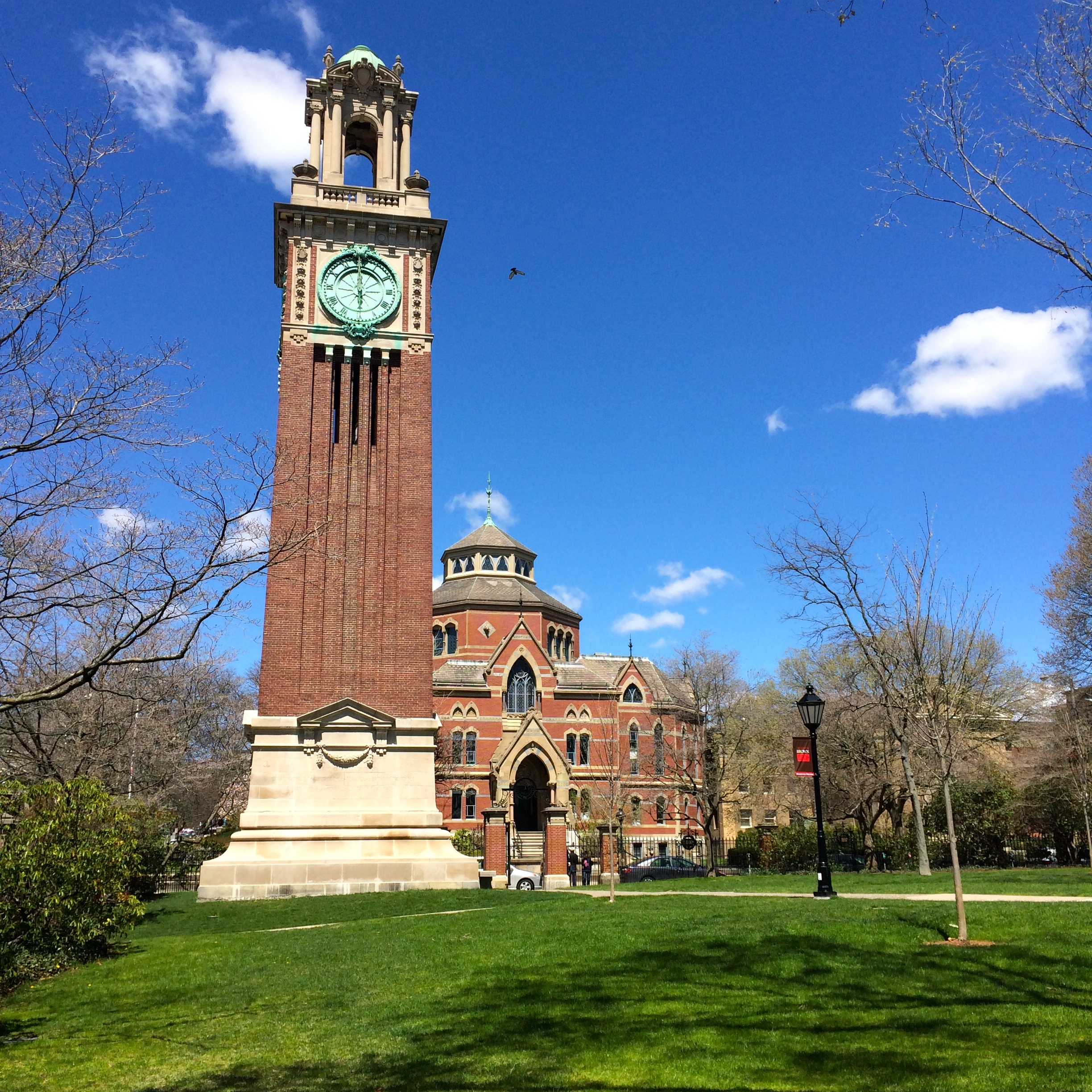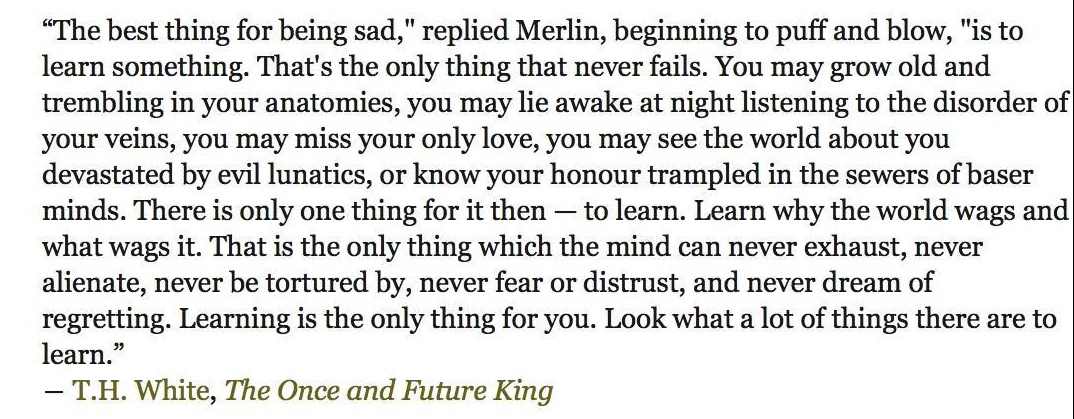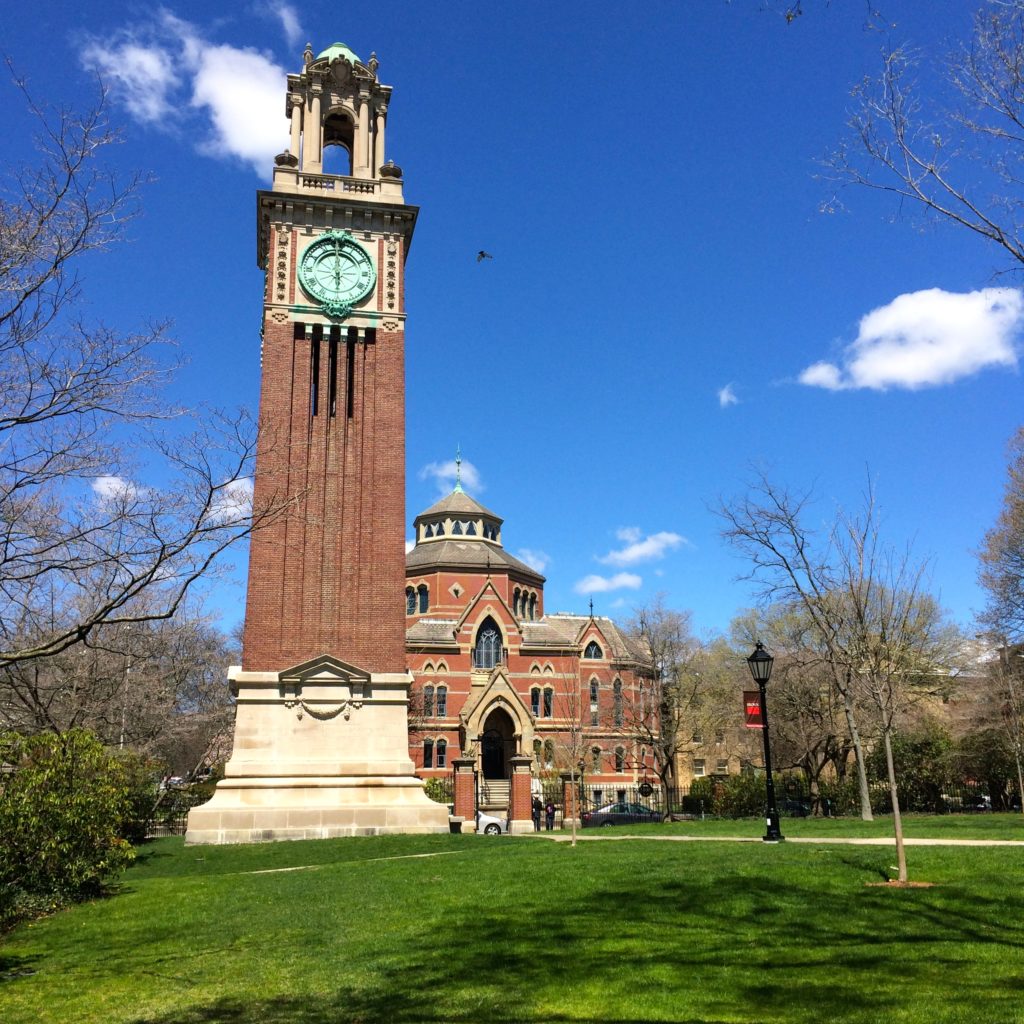
This series is an alphabetical exploration of 26 options for living well, despite everything. It answers the question–How can we live well, despite problems?
The word University, comes from Latin and stems from Universe; indicating the whole, the entire, everything.
U is for University: Learn Everything You Can!
I’m convinced that becoming a life-long learner is one of the wisest, most rewarding things anyone could ever do with her life.
We humans are born naturally curious. We’re hardwired to enjoy learning. Satisfying our curiosity through exploration and discovery is a joyous endeavor.
Consider healthy young children, how they investigate every sound, every flash, breeze, sensation, color and twinkle. Why? Because new experiences and surprises are inherently delightful.
What does the world look like upside down? What does it feel like when I roll down a hill? What if I try to run up the hill when I’m dizzy?
We quest to find answers to the questions that puzzle and intrigue us; the joy of discovery naturally follows.
Unfortunately, most of us have at least a few unpleasant, uncomfortable memories of learning. We may be scarred, scared, or intimidated. We may shy away from subjects we would like to know about, because we have been led to believe we are incapable of understanding certain subjects.
How can we reclaim our birthright as joyous discoverers of knowledge and wisdom?
- We can make a commitment to learning.
- We can seek out mentors and humble ourselves to ask questions, to listen, and to imitate.
- We can persevere; working diligently until we get it.
- We can choose to see mistakes not as failures, but as opportunities to learn.
- We can accept constructive feedback and learn from it,
- but we should shrug off stupid criticism, motivated by envy or enmity.
- We can learn to recognize the difference between people who want to help us grow, and those who want to diminish us.
- We can choose to experience life rather than merely watching it.
- We can read. (Reading is inherently participatory).
- We can be fascinated, not intimidated, by people who possess knowledge, and we can surround ourselves with other, interesting, lifelong learners.
- We can grow into our best selves.
It comforts me to know that the power to grow is inherent in the joy of discovery. The thrill of learning springs from our inborn, natural curiosity. But that power must be nurtured and cultivated to prevent it from withering.
Learning begets learning.
One of the subjects I’m studying right now, which is giving me great joy, is gardening and landscaping. (I’ve started a new blog about it: you can click here for more information about that).
What are you enjoying learning these days?


I like being among people who like learning. It’s akin to being open, and when you are with those people, you know you have something in common.
I’ve met almost all of my friends in situations of learning: classes, book groups, tours, workshops
(or I’ve met them through the mutual practice of learned skill/craft/art). I find conversation and amiability so much easier with people who are interested in and curious about the world/universe.
Yes! We are never too old to learn something new. Sometimes it feel like once we’re finished with school, we think that we’re done with education. Although I’m not taking classes in mathematics or economics, I have been taking a pottery class that I’ve been enjoying. Pottery was such a foreign art form to me and I’ve been surprised how much work it’s taken to feel like I can make something presentable!!
How fun! I’ve always wanted to take pottery classes, but at some point I have to tell myself–enough.
I was just having a conversation with a friend who is 79, her husband is 89. She is an artist (still traveling to Austria to paint commissioned portraits and landscapes). He is a representative in the state house. She told me that she thinks people begin to die, when they decide to stop learning and exploring.
My vocation is learning, Tracy, and so I resonated in all my chambers with this post. I love the U in You!
And I love the U in You! I’m always happiest when I’m among students/teachers. Life Is Learning!
That’s my goal–the quote just taught me to say it better–“…learn why the world wags, and what wags it!” I love learning new things. I could have stayed in grad school for years if I’d had the money and could have moved my family with me on campus. Now I take the most interesting weekend classes, art classes, yoga classes, and starting next week I’ll take three evening sessions in “books into movies” taught by a reviewer.
There’s so much to learn!
Thanks for another great post, Tracy.
I love that line, too, Marylin.
I think a life of perpetual grad school would suit me just fine, if only I had the cash for it!
Working with students presents a learning opportunity every day – I love it. And I never stop reading or checking out exhibitions. Today I went to a new Impressionist exhibition at our National Gallery – marvellous. If I was to learn a new skill, it would have something to do with ceramics.
I know exactly what you mean, Jenny. When I was teaching, every single day was new. An environment of learning/discovery is SO energizing.
I really like the impressionists — my husband LOVES them. We go to every exhibit we can find (for his sake, because when he’s happy; I’m happy!). There haven’t been any new ones in our area lately. Rhode Island’s museum is the RISD, which tends toward 20th-21st century and the avant grade.
I was thinking today, about all the things I’d like to do. Pottery was one; but that will have to wait until retirement, It think.
I love being around people who have a love for learning and sharing their keen knowledge with others, so satisfying to learn something new. I remember when I lived in California I wanted to grow my own roses from bareroot but didn’t know how. So off I went to the library, checked out some gardening books and it wasn’t long before I had a garden full of the beauties. A wonderful feeling. I just wish I had the same feeling when I had to learn how to use my new smartphone…a necesssity rather than a pleasure, but I have to admit, learning about some of those apps has its uses 😉
I’m with you, Sherri. Learning to garden is much more pleasurable than learning to use my smartphone. I’ll have to re-check my attitude about that…. (learning is a pleasure, Tracy, even learning to use your phone can be a joy!) Thanks for the reminder!
You’re welcome Tracy 😀
Such a resonating post Tracy! I like to see myself as the ever-lasting student, NEVER done with learning. I love love learning, studying, exploring and trying out new things..just keeps me alive I guess 🙂 Then again, at a certain point it may be time to put it into practice..and that’s another story. Like you said learning is also “experiencing” and living with trial and error and not just only gathering information or knowledge from books, right? 😉
Exactly! I think that “playing” is a way to put the gathered information and knowledge into practice. We were just talking about that in a book group today, of the need for levity. Studying can be such a serious thing.
My parents used to talk about people who had nothing but “book-learning,” meaning they knew a lot of information, but weren’t very much use in the practical world, where people need to eat, food needs to be procured, dishes need to be done, and babies and the elderly need to be comforted.
The world is the university of the universe — not important learning doesn’t all come from books, right?
Is it getting hot in Texas?
In two days, I’ll be going to a conference in St. Petersburg for ESOL teachers – (English Speakers of Other Languages). I have worked with ESOL students. But, about 2 years ago, they put them in separate classes. I was asked if I’d like to teach 4 ESOL classes (out of 6 classes). I’m looking forward to the challenge even though 2015-16 will be the last year I’ll be teaching. 😉
What an awesome experience you’ll have!! I hope the conference prepares you well for your new adventure. I also hope it will be a happy adventure for you, full of the best joys of teaching.
My friend has a Masters in ESOL. She got a really good job teaching Spanish at good liberal arts college, but her greatest joys in teaching came before that job, when she was teaching primary and middle school ESOL students. I hope the same for you–that the last year of teaching full time will be your happiest!
Thank you, Tracy. I’m really looking forward to teaching ESOL students again. (Before they were part of regular classes. Now, they are in their own class until they’ve become more proficient in reading and writing in English.)
Do you see that as an advantage (the splitting)? I tend to think it must be better for everyone, but I’m not on the inside of teaching any more.
I see advantages and disadvantages to the splitting and to the mainstreaming. Tough call.
There are never easy answers to the important questions.